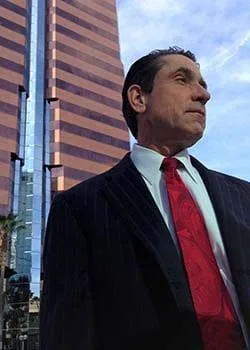A criminal law case is prosecuted by the Government, either Federal or State. A prosecution is commenced when a formal written document is prepared by government lawyers accusing a citizen of committing a crime. A criminal case, as opposed to a civil case, can result in prison or jail for the accused. A criminal law case is either a felony or misdemeanor.
A misdemeanor is a criminal offense that carries up to a maximum of one year in jail. Some misdemeanor offenses carry a six month or 90 day maximum sentence. Infractions, such as jay walking, speeding, or various local ordinances, carry fines only, not jail time and are not criminal offenses.
A felony is a criminal offense, that carries a maximum sentence of greater than one year. Some felony offenses, depending on the charge and the type of prior convictions alleged, can carry up to a life sentence.
Criminal law cases must be distinguished from civil cases, that seek money damages, or for divorce, or to force someone to do or not do something. Civil cases can not result in jail. Most civil cases result from some sort of injury caused by one party against another or some type of disagreement that cannot be settled out of court.
Criminal law cases have law and procedure unique to criminal courts. Thus when you are fighting a criminal law case, it is imperative that you obtain a lawyer with specialized knowledge regarding criminal cases. Long Beach criminal lawyer, Matthew Kaestner, has over 30 years of experience handling criminal cases and is available to answer all of your questions about criminal cases at (562) 437-0200.
In all criminal law cases, felony or misdemeanor, the accused has the right to a speedy and public jury trial. Even though most cases don't usually end up going to trial, the right to a jury trial and the right to choose your own criminal attorney are the most important rights you have when you are accused of a crime. Also an accused has an absolute right to remain silent at all stages of the criminal case from initial questioning through trial.
After the arrest of a citizen by the police, a report is generated by the police and given to a prosecutor, either the District Attorney or local prosecutor. Although the police can make an arrest based only upon "probable cause", it is the prosecuting agency, that reviews the police report and determines whether criminal charges should be filed. However, most of the time the police make an arrest, the government will file charges. Only a government lawyer, a "prosecutor" can bring criminal charges. It is not true that a citizen can "press charges."
In California, a person arrested has the right to be brought to Court and advised of the charges against him within 48 business hours excluding weekends and holidays. If the arrested person posts a bond, the government has more than 48 hours to bring them to court. Whenever you or a loved one is arrested or accused of a crime, it is extremely important that a criminal law specialist be contacted immediately to protect you and assert your rights for you.
The very first court appearance after an arrest is called the arraignment. At an arraignment, the accused is advised of the criminal charges, advised of his rights, and given the police reports. A plea of "not guilty" is entered. On felony cases, a pre-preliminary conference date is set as well as a "preliminary hearing." A person charged with a felony is entitled to have a preliminary hearing within ten court days of the arraignment.
At the pre-preliminary hearing conference, the defense and prosecution meet to discuss a possible plea bargain on the case. Experienced counsel also use the pre-preliminary hearing conference to obtain all information possible about the case, the witnesses, search and seizure issues and other important facts about the case. Sometimes an experienced criminal law attorney will obtain an order for a physical line-up to test the prosecutor's eye-witnesses.
The preliminary hearing is the first critical stage of a felony case. At the preliminary hearing, a judge listens to witnesses presented by the prosecutor. The prosecutor's job at the preliminary hearing is to convince the judge with witnesses that there is probable cause that the charges are true. In reality a judge will usually find probable cause unless there is a very weak or no evidence of guilt to support the charges.
An experienced criminal law attorney will use the preliminary hearing as an opportunity to thoroughly cross examine the prosecutor's witnesses and do damage to the prosecutor's case. At the end of the prosecutor's presentation of witnesses, the defense may call witnesses or present evidence. After hearing all the witnesses and viewing all the evidence presented, the judge decides whether the prosecutor has established probable cause to support the charges. If the judge finds "probable cause" to support a felony, the case is sent to a trial court and the defendant is ordered to stand trial. On occasion, the judge will dismiss the case.
If the preliminary hearing judge orders the case to a trial court, a second arraignment occurs in the trial court about two weeks after the preliminary hearing. At the arraignment a pre-trial is set about thirty days later and trial is set within sixty days. An accused on a felony case has a right to a speedy trial within sixty days of the arraignment in the trial court. At the pre-trial, efforts to settle the case with a plea bargain are made, pre-trial motions are heard, and any final discovery issues are resolved. The defense must also present the prosecutor with the witnesses and evidence they will use at the trial at this time. If the case is not settled, the case proceeds to a jury trial.
Misdemeanor cases are different than felony cases in that there are no preliminary hearings. At the arraignment, the misdemeanor case is set for a pre-trial and jury trial. A person in custody is entitled to a trial within 30 days of his arraignment. A person out of custody at his arraignment is entitled to have a jury trial within 45 days.
If you have been arrested or accused of a crime, you have the constitutional right to have an attorney assist you and to remain silent. YOUR SILENCE CAN NEVER BE USED AGAINST YOU IN COURT. View Long Beach criminal attorney Matthew Kaestner's video on remaining silent.[View video]
For expert advice on any question related to criminal law, contact Long Beach Criminal Law Specialist Matthew G. Kaestner. He will personally take your call at (562) 437-0200. Long Beach Criminal Attorney Matthew G. Kaestner is a Criminal Law Specialist with over 30 years of proven expertise in all types of criminal law cases, including narcotics offenses, homicides, white collar crimes, search warrant cases, DUI/DWI, domestic charges, assault, and all other serious criminal cases. Mr. Kaestner is Board Certified as a criminal law specialist by the California State Bar board of legal specialization.
If you need expert assistance from a criminal law attorney, contact Long Beach criminal lawyer Matthew Kaestner at (562) 437-0200.




